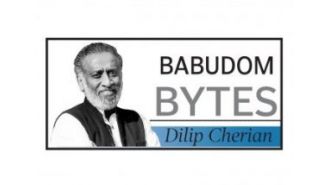Some Thoughts On The SEC's Rulemaking On General Solicitation

The JOBS Act was signed into law on April 5, 2012. This legislation was designed to make it easier for small businesses in the US to raise capital and contained a number of important and valuable changes to securities laws. One of the most promising changes in the JOBS Act is around the concept of General Solicitation.
General Solicitation is the marketing of a securities offering (a fundraise) publicly in the open market. The Securities Act of 1933 (which still governs much of securities law in the US) prohibits "general solicitation" or other forms of advertising in securities offerings pursuant to Rule 506 and Rule 144A which are the two most common forms of securities offerings for private companies.
In response to the JOBS Act, the SEC has lifted the ban on General Solicitation and on September 23, 2013, companies can start to use public marketing in their fundraising efforts with some important conditions. I blogged about how important this could be for startups when that news came out.
First and foremost, if you want to use General Solicitation, you must limit your investors to accredited investors (investors that satisfy net worth or annual income requirements) and you must undertake some specific efforts to make sure that your investors are in fact accredited. This is above and beyond what is typically required in a securities offering where General Solicitation is not used.
But the SEC has not stopped there. They have put foreward additional rules for public comment. If anyone in the SEC cares to read this blog, they can consider this my public comment. I am not planning to send in a formal comment nor is USV or anyone else at USV.
It is my opinion, and that of those who we do business with, including our securities lawyers, that these proposed rules effectively make General Solicitation a non-starter for startup companies. If the SEC's intention, with these proposed additional rules, is to neuter General Solicitation to the point that it is legal but nobody avails themselves of it, they will succeed.
Here are a few of the most problematic rules:
1) A 15 day filing period for Form D before the company initiates its fundraising process (and before the company even knows if it will be able to raise capital). Typically we file for Form D after the raise has been completed. To do so before the company intitiates a fundraise is not realistic and ignores how startups raise capital. If there was one rule that I would most like to see the SEC remove, this would be it.
2) The requirement to formally file all written materials provided to investors with the SEC is very burdensome when entrepreneurs update their slides and other fundraising material from meeting to meeting.
3) The penalty for violating any of these rules is a one year prohibition from being able to raise capital under Rule 506. Given that startups need to raise capital frequently and they need to avail themselves of this form of securities offerings, this effectively means that a startup that violates any of these rules is likely to be put out of business. This is way too harsh and means the risk/reward analysis around using General Solicitation is skewed too much toward risk. Which means nobody will use it.
USV is an interested party to this rulemaking process in a number of ways. First, we invest in startups. The more startups there are, the better for us. So anything that creates more financing for startups is good for us. And anything that makes it harder for startups to raise capital is bad for us. Further, we are investors in CircleUp, a fundraising platform for startups that would benefit greatly from opening up General Solicitation.
I have been investing in startups since the mid 80s. I have participated directly or indirectly in the financing of hundreds of startups, possibly more than a thousand when all of my activities are aggregated. If I am an expert in anything, I am an expert in the financing of startups. And in that capacity, I can tell you that the proposed additional rulemaking around General Solicitation is a non-starter in startup land. If these rules come down as drafted, we will keep doing things the way we have been doing them for years and possibly the single most important change from the JOBS Act will have been for naught. And that would be very dissapointing to me and many others in startup land.
Here are some other links worth reading on this topic:






